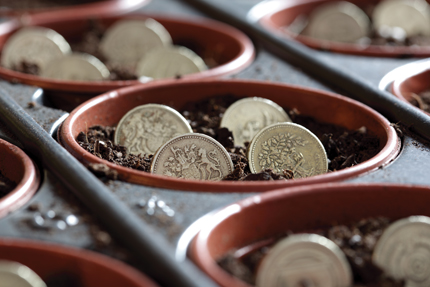Editor's Pick
Financial advisers share their tax saving tips

UK taxpayers are set to waste £4.6bn this year in unused tax allowances, according to research.
Prudential and unbiased.co.uk, which co-published the study, said this was slightly down from last year’s £4.9bn but put improvement down to a greater uptake in workplace pensions thanks to auto-enrolment.
The organisations said elsewhere the wastage is getting worse, with low ISA usage and poor inheritance tax (IHT) planning wiping out more than half the £1bn of savings made by pensions.
To encourage people to save more in tax, a group of financial advisers has offered up a set of top tips.
Invest in pensions now
“We believe that the March Budget may well cut additional and higher rate tax relief from 45/40 per cent to 30 per cent or even 20 per cent, so there is a compelling argument to invest as much as possible into your pension now while the tax relief is so generous.” – Jonothan McColgan, Combined Financial Strategies Ltd
Use your personal savings allowances
“Use your pension and ISA allowances on 6 April 2016 not 5 April 2017 – in other words, sooner not later! If you have unrealised capital gains in your portfolio and have not used your personal allowance, sell holdings up to the personal allowance before the end of each tax year.” – Simon Webster, Facts & Figures Financial Planners
Consider opting out of pensions
“With the pension lifetime allowance falling from 6 April 2016, consider whether you want to opt out of pensions for the future and claim Fixed Protection 2016. I’ve prepared calculations for one individual with only £500,000 of funds and have recommended that they opt out. Naturally personal situations will vary, but this highlights the need for tailored advice.” – Alistair Cunningham, Wingate Financial Planning
Rebalance your portfolio to reduce CGT
“Use the extra pension contribution allowance (only available as a one-off) and consider a portfolio rebalance while fund values are low, to reduce exposure to CGT.” – Tony Larkins, Beacon Wealth Management Ltd
Check for tax refunds on lower incomes
“In this tax year (2015/2016) there is a tax benefit for those on lower incomes who have savings. All your interest will be tax free if your total taxable income is less than £15,600. You can claim a refund on some of the tax on your interest if your taxable income is less than £15,600 when you don’t include savings interest.” – Joss Harwood, Eldon Financial Planning
Use cash savings accounts
“A revolution in cash savings will see ordinary cash accounts paying interest without tax deducted. Basic rate taxpayers will receive £1,000 of tax-free interest from cash deposits and higher rate taxpayers will be entitled to £500 tax-free. Only additional rate taxpayers won’t have any personal savings allowance.” – Danny Cox, Hargreaves Lansdown
Take advantage of dividend allowances
“All taxpayers from April will have a £5,000 dividend allowance. This means any dividend payments you receive, either from a company shareholding or investments outside of an ISA or pension, will not incur a tax liability up to this level. Anything over £5,000 will be taxed at a rate dependent upon your marginal rate of income tax. A review of your circumstances could be vital.” – Armstrong Watson Financial Planning
Invest in ISAs
“£15,240 may be paid into an ISA in this tax year. It is no longer possible to “bed & breakfast” shares to maximise the use of the CGT exemptions, but a “Bed & ISA” will crystallise some of the gain. Married couples may “bed & spouse” to use the CGT exemption!” – Rowena Griffiths, Female Financial Management
Set up children’s savings plans
“If you are worried about IHT, consider setting up regular savings plans for your children or grandchildren. Provided the savings do not materially reduce your standard of living, they would benefit from the “Normal Expenditure out of Regular Income” exemption, meaning that these savings would be free of IHT.” – Scott Gallacher, Rowley Turton Private Wealth Management
Transfer savings to your spouse
“If you work and your spouse doesn’t, or pays tax at a lower tax rate, then you may be missing out on tax savings if you have investment income. You could make tax savings by transferring savings or shares into your spouse’s name or changing the ownership of investment properties, so that the ownership is weighted in favour of your spouse, which means that the income would be too.” – Gretchen Betts, Broadway Financial Planning
Make charitable donations
“Take time to understand your tax position so as to make the most out of tax breaks on pensions and charitable donations. Some key income thresholds to be aware of are:
- £10,600 – the tax-free personal allowance that most people have
- £42,385 – the point at which 40% tax starts for most people.
- £50,000 to £60,000 – the bracket in which child benefit is lost.
- £100,000 to £121,200 – where a quirk in the tax system means income tax shoots up to 60 per cent
- £150,000 and over – where the tax rate is 45 per cent.” – Jason Whitcombe, Evolve